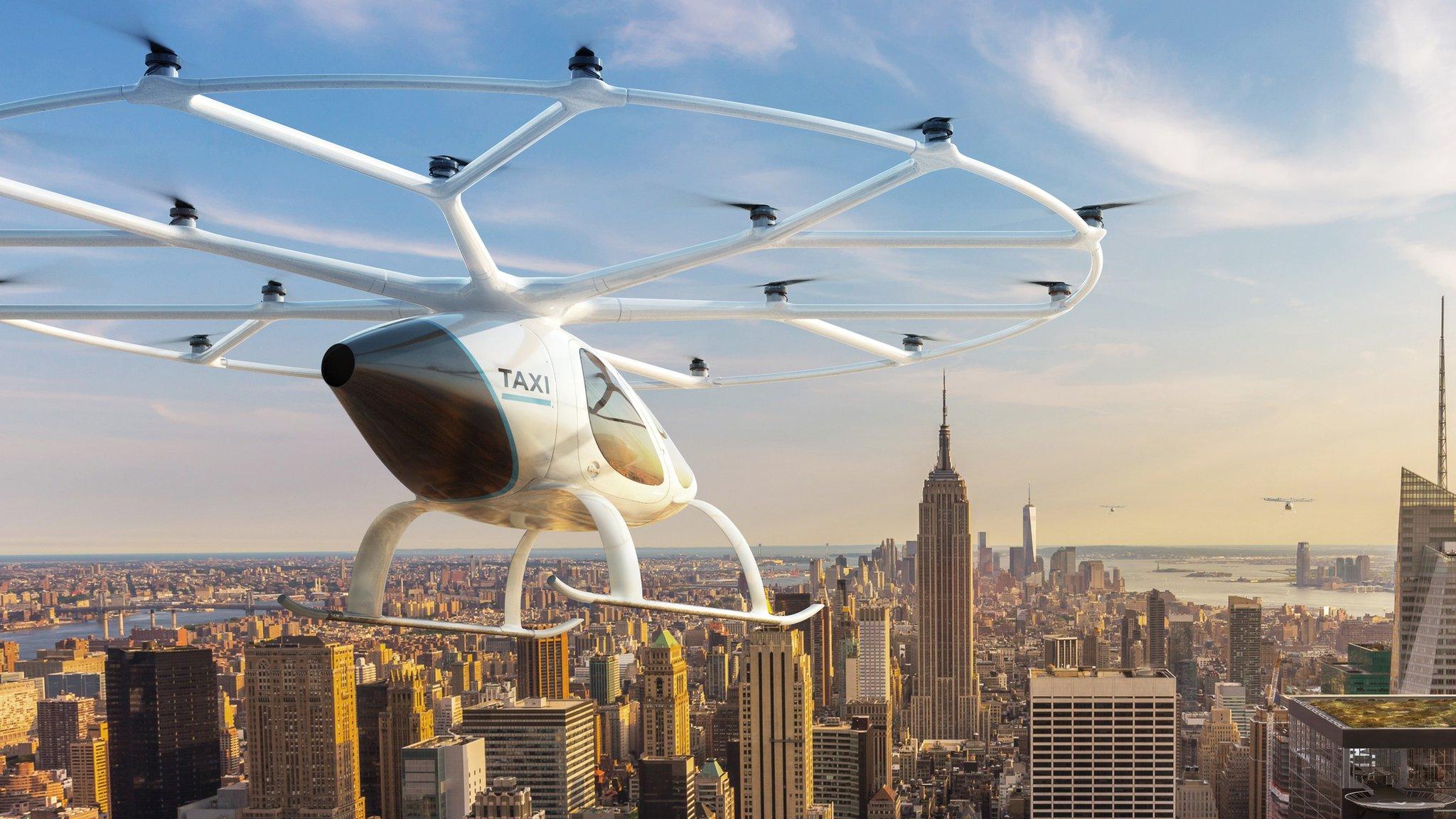Europe-wide traffic survey to recruit 'citizen scientists'
- Published
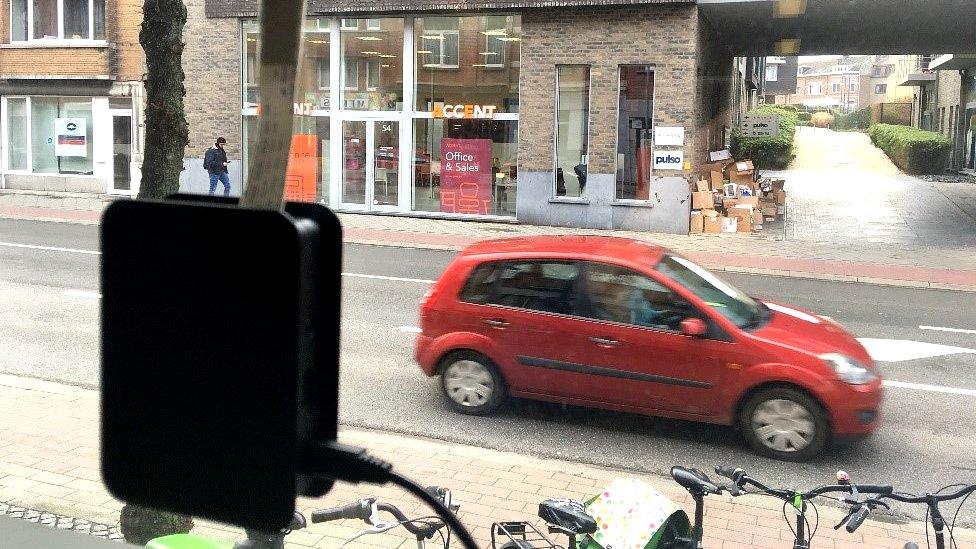
Traffic sensors will be placed in homes across Europe
Traffic sensors are being set up in homes in five cities across Europe in a bid to learn more about traffic flow.
English academics are involved in sending out 1,500 sensors to be placed in homes in Madrid, Dublin, Cardiff, Ljubljana and Leuven.
The sensors will count the number and speed of all vehicles, cyclists and pedestrians that pass them.
Prof Enda Hayes, who is helping run the survey, said getting ordinary people involved would be key to its success.
"We will be targeting certain areas but also asking for people to volunteer to have sensors in their homes," he said.
"Our data will be uploaded to the cloud so it can be seen by anyone, be that private citizens, the local council or NGOs.
"The evidence can be used in a number of initiatives relating to things like speed, noise, air pollution, safety and active travel. Hopefully it will place citizens in the centre of the debates on these issues."
The data gathered will be updated hourly and will be freely available for anyone to access online.
The cities are being included in a project called Citizens Observing UrbaN Transport (WeCount).
It is part of Horizon 2020,, external a European Commission-funded research project into sustainable economic growth.
With air pollution being blamed for 500,000 premature deaths across the continent in 2018, the experts running the survey hope their results can be used to make cities healthier places to live.
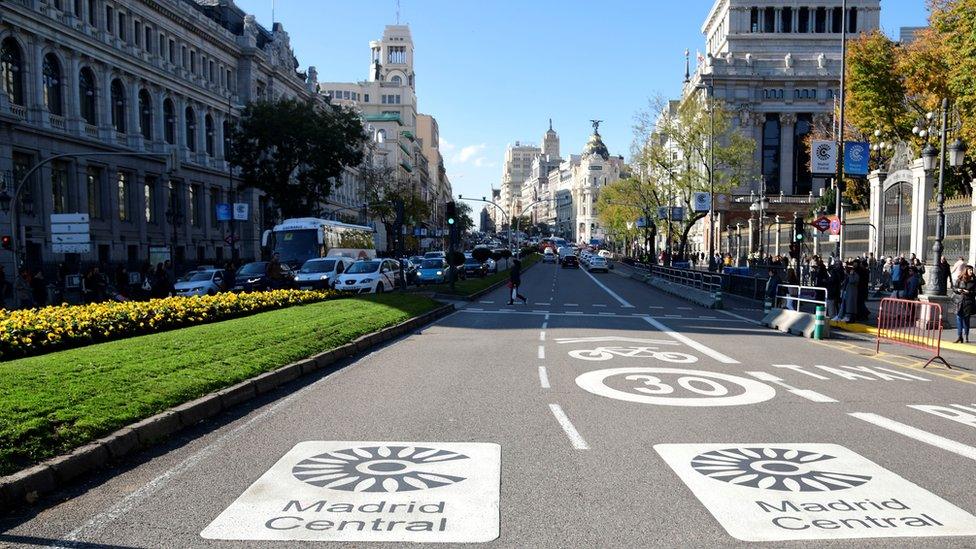
Spanish capital Madrid is facing air pollution issues
Healthier streets hope
Prof Hayes, from the University of the West of England (UWE) in Bristol, says the technology being used is simple, but will enable people to take control of data where they live.
The sensors will be placed in homes with a clear view of the road outside.
Software inside them will analyse the speed and size of whatever passes it and determine whether it is a vehicle, pedestrian or cyclist.
"The sensor components are made by Raspberry Pi, standard hardware that's available off the shelf. They are powered by a micro USB port," he said.
"It will connect to the wi-fi in the person's home, just like any smartphone or computer.
"Data is published hourly but the exact location of the sensor is not given, just the road it is on."
Live traffic movement
The software running on the units has been developed by Transport & Mobility Leuven (TML) and the sensors are already being used across Belgium.
Anyone can log on and see how many vehicles, pedestrians and cyclists have passed a certain point, external in the past hour.
WeCount follows projects such as the Copenhagen Hacking study,, external which uses information from cyclists to monitor traffic movement in the Danish capital.
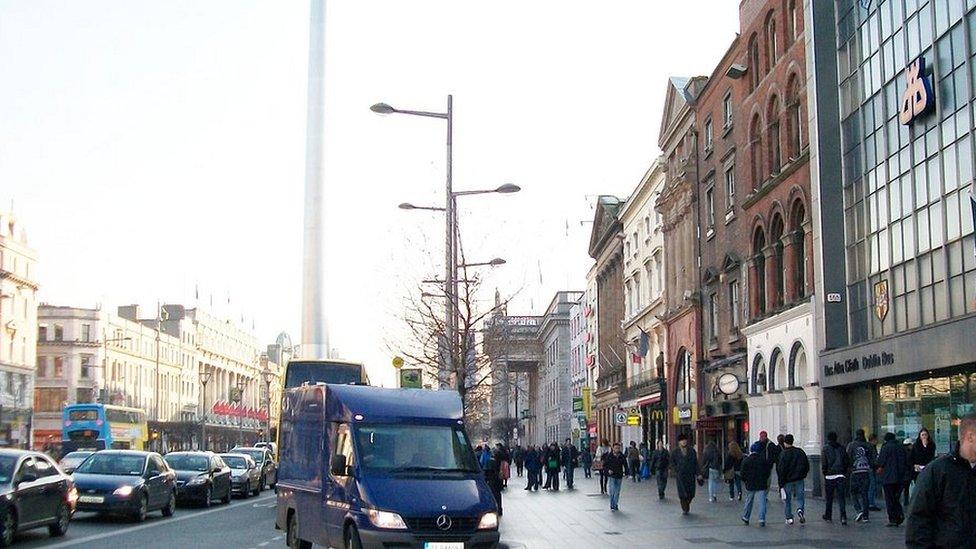
Dublin will be one of the cities where traffic will be studied
WeCount, which is being led by engineering and emissions expert Kris Vanherle, began in December 2019 and will run for two years.
Prof Hayes says that while the overall motivation is reducing air pollution, there will be other focuses in individual cities.
"In Cardiff we're aiming to put some near schools to study issues around the school run," he said. "We'll also be putting sensors on roads the council have already marked as problematic from a transport point of view.
"Overall we want to go beyond just data gathering. We want to turn these 'citizen scientists' into advocates who will use the data to work with employers, schools and local transport authorities to help drive forward healthier cities and healthier planning."
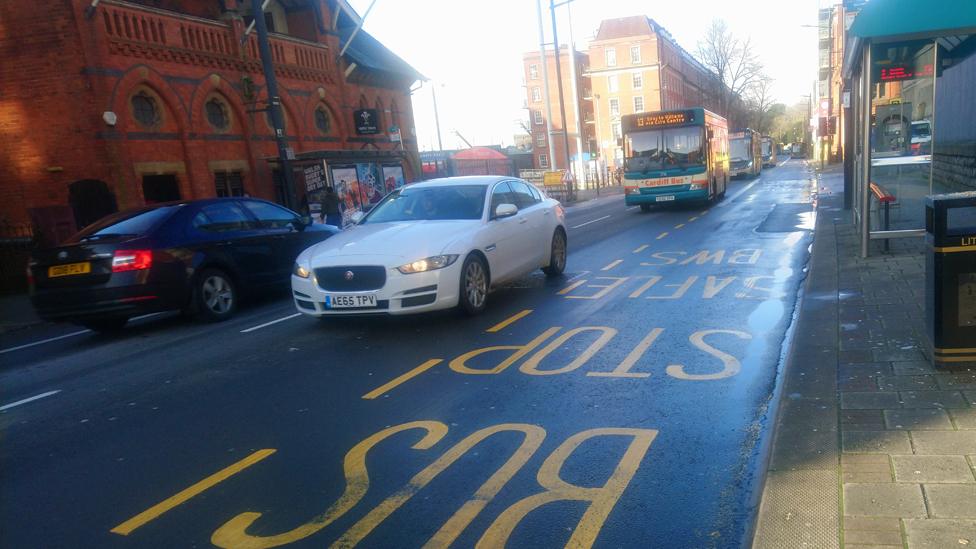
Traffic sensors will be deployed in Cardiff as part of WeCount
'We must do something'
Prof Hayes believes a traffic study on this scale has never been done before and because the individual sensors are relatively cheap to produce, WeCount could start a mass movement of neighbourhoods being more informed about traffic in their area.
As an air quality expert, he says cities must take action on congestion now.
"If we don't do anything we will see a continued decline in air quality in our urban environments across Europe and that will result in more deaths and more health issues.
"We need to address one of the biggest sources of pollution which is traffic."
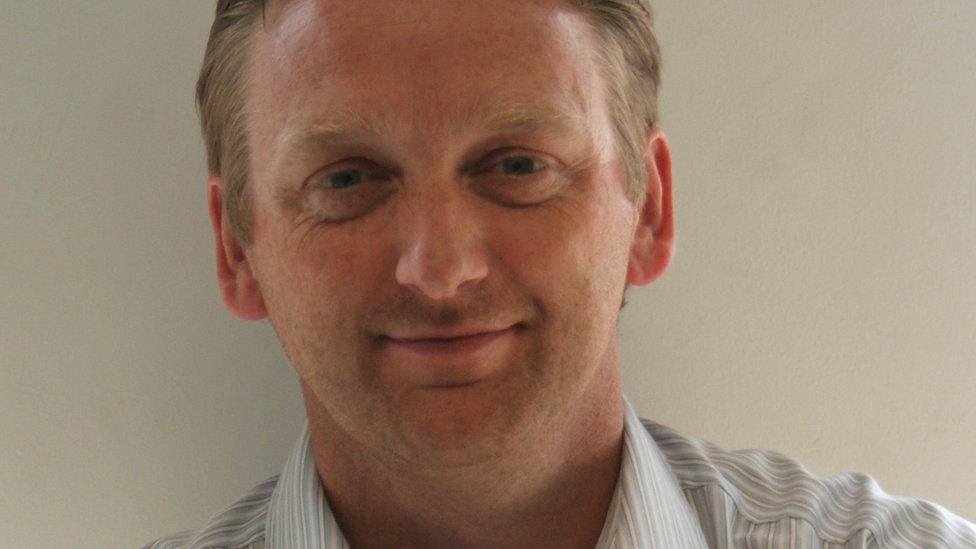
Air quality expert Prof Enda Hayes from the University of the West of England
- Published10 December 2019

- Published15 January 2020
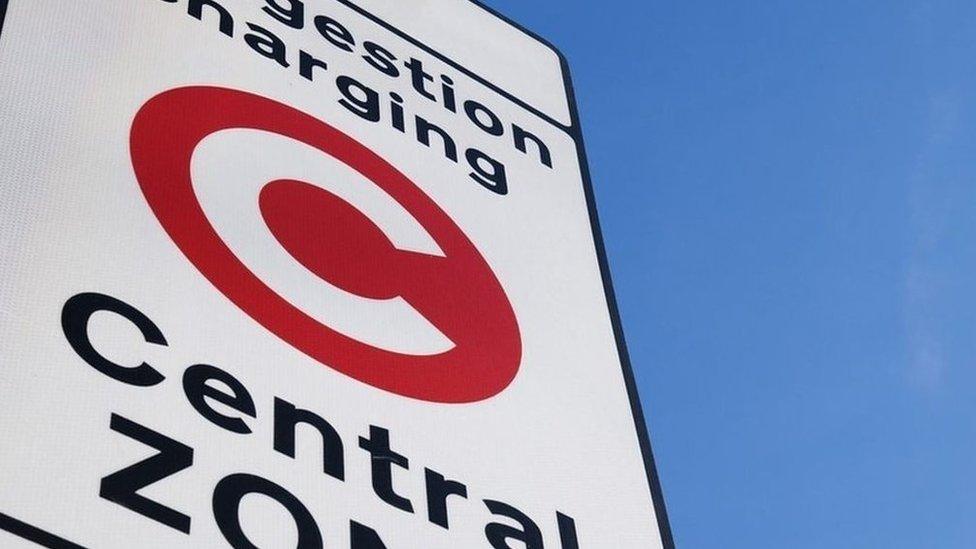
- Published5 September 2019
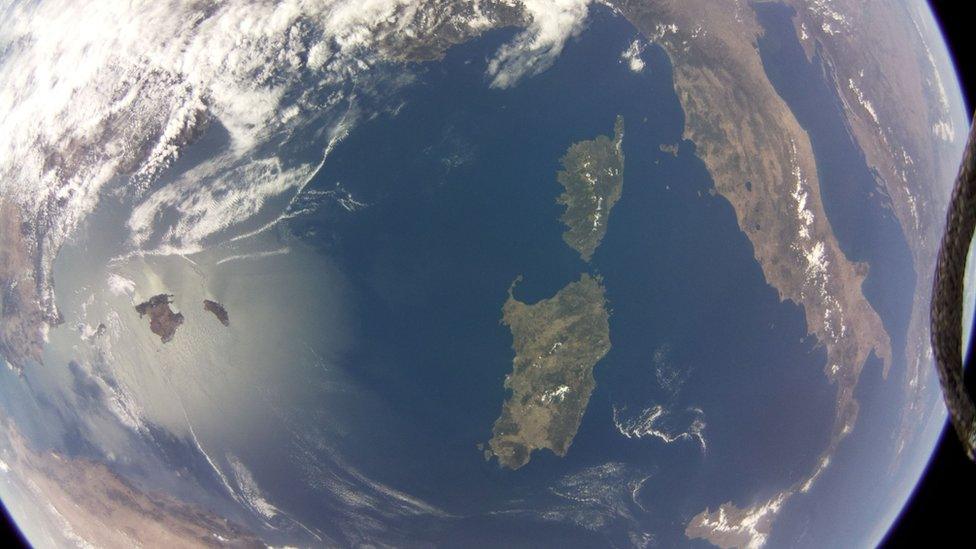
- Published4 November 2019

- Published21 October 2019
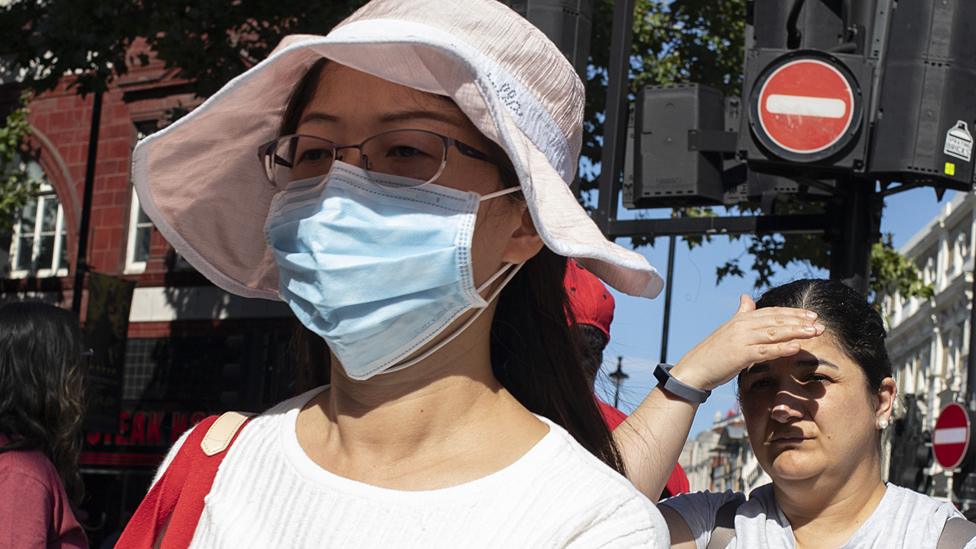
- Published22 October 2019
